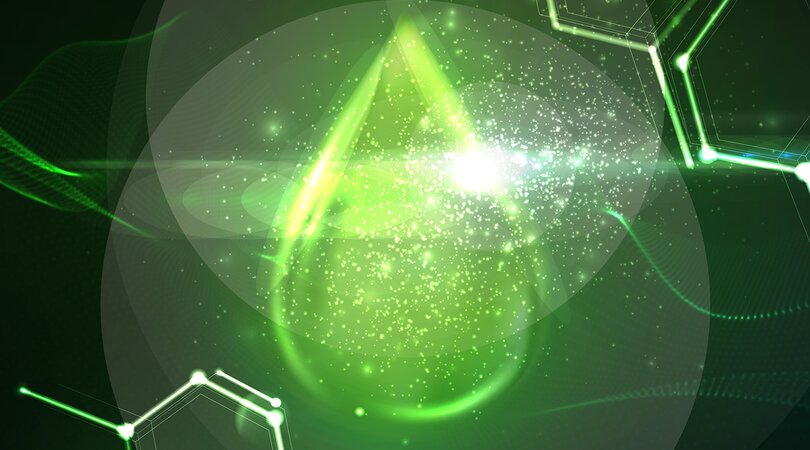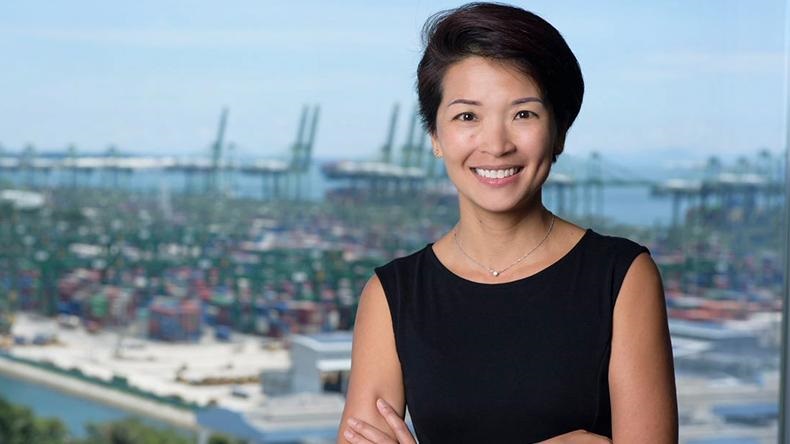Our new NorthStandard site is now live. There will be no new content or updates added to this site. For the latest information, please visit our new site north-standard.com.
“第四次推进革命”,为绿色海运业做准备
海运业如何解决变得更环保的问题,两位行业专家就航运替代燃料和脱碳分享了他们的观点。

脱碳目标正在迅速逼近。所有行业都必须适应这一情况,海运业也不例外。国际、国家和地方法规正在不断完善,替代燃料的开发也在进行之中,操作实践正在接受审查。
在最新的 Alongside 播客中,Standard Asia 总经理 David Roberts 与去年成立的新加坡非政府组织 Global Centre for Maritime Decarbonisation (GCMD) 首席执行官 Lynn Loo 教授就“第四次推进革命”及其对航运的影响进行了探讨。
Loo 教授介绍道,GCMD 的使命是帮助国际航运业消除温室气体排放。“我们通过资助一流项目来帮助制定未来的燃料标准。同时,基于实际操作条件和设想,我们将试行低碳解决方案和技术,从而实现这一目标。”Lynn 教授表示。
David 补充说,IMO 释放出信号,行业和协会需要“在这一重要领域积累专业知识,以便我们能够在转型过程中为会员提供建议和帮助。”
GCMD 正在寻求支持,希望参与到多种试行方案当中,包括低水平的金融支持和积极参与新能源试验等。Lynn 教授补充道:“我们拥有大批工程师和科学家。因此我们可以进行尽职调查,并且我们了解痛点,可以确定试点范围,这样我们就可以解决这些问题。”
Standard Club 是一家专业的海事和能源保险公司,协会致力于在使用替代燃料方面为会员提供指导和帮助。
行政障碍
David Roberts 解释道,行业内的许多领域已经“做好了转型的准备”。但还有一些领域没有准备好。挑战非常艰巨,因此 Standard Club 一直在号召集体应对。
David Roberts 在播客中表示:“我们正在努力尝试在短时间内完成大量工作,弥补失去的时间。”
David Roberts 称,很大一部分 Standard Club 会员表示,他们已经准备好,或者即将准备好迎接 2023 年 1 月这一最后期限。但资金和后勤方面的挑战依然存在。
Loo 教授解释说,航运脱碳依赖于利益相关方和外部参与者。
最终目标是使用零碳燃料,尤其是绿色氢能源,这应用于各行各业的许多终端领域。一种是为航运业生产绿色燃料,无论是氨、甲醇还是其他合成燃料。
因此,追求绿色燃料是一把双刃剑。航运公司对采取必要措施的兴趣浓厚,但许多能源的开发都源于其他地方。
Lynn 教授表示:“在某种程度上,我们受制于行业外的参与方。这要求我们考虑使用新的基础设施,因为这些是我们以前没有用作船用燃料的新燃料。”
David Roberts 补充说,虽然出现了新技术和新燃料,但实际上仍处于试验阶段。
GCMD 正在进行部分试验,但目前的基础设施不足以应对这些问题。而且全球范围的改变本身就是一个挑战。世界各地的船舶和港口都是在依赖传统能源的基础上建造的,要摆脱传统能源,就需要新的技术、船舶和发动机设计。
David Roberts 介绍:“我们实际上正在经历第四次推进革命。全球首先进行了 煤炭和蒸汽革命,然后是石油,现在我们正在寻找零碳燃料。”
所有这些后勤方面的挑战是人们最关注的,甚至排在财务成本和谁愿意成为第一个尝试这些新能源之前。Lynn 教授表示:“这就是为什么像 GCMD 这样的组织如此重要。”
GCMD 认为氨可能是绿色航运的未来。据悉,第一台发动机将于 2024 年面市,第一艘船舶将于 2025 年下水。
业界广泛认为氨是摆脱化石燃料牵绊的潜在出路,但将氨作为船用燃料可能缺乏安全性,这个问题由来已久。Lynn 教授表示:“我们很快意识到,实际上不能进行氨燃料的试点,因为没有与加注氨和将氨用作燃料的相关安全指南。”
这是行业所面临问题的一个缩影:从测试新燃料到为其使用制定基本的安全指南,在一种新燃料类型被采用之前,还有许多障碍需要跨越。
保险调整
David Roberts 介绍道:“保赔协会系统已经延续了约 150 年;我们一直在对保险进行调整,以满足新挑战、新形势的需要,为我们的会员提供保护。”
引入新燃料的主要风险是对船员造成伤害、致病或死亡风险。其他风险包括污染、环境破坏、罚款以及因违反相关法规而受到国际权威机构的其他相关处罚。
保赔保险已经较为完善,可以应对许多极端情况。但还有一个问题,新出现的风险和潜在的不可预见的风险没有被考虑在内。这就是互助保险灵活性的重要体现。
David Roberts 表示:“如果有必要调整或加强我们提供的保险,应对目前还没有完全了解或完全意识到的特定风险,那么我们会考虑做出这样的调整。”
更加光明的海岸
专家们表示,人们对绿色转型普遍热情,而非沮丧。有人批判 IMO 的目标不够严格,这可能导致相关合规延迟。
Lynn 教授解释说,GCMD 打算加速其替代燃料进程。脱碳问题不再是“如果”的问题,而是“怎样快速推进”。
“大家对拯救地球持乐观态度,”David Roberts 说,“石油和天然气价格的上涨可能会刺激勘探和开发增加。但到 2050 年,我们应该看到的情况是,全球至少一半的能源供应来自非化石燃料。”
他补充道:“在很大程度上,合作至关重要。我们生活在同一个生态系统当中,不仅包括海洋生态系统,还涉及更广泛的经济、金融生态系统,我们必须相互支持。”
Lynn 教授对此表示认同,并再次提到了海事的综合性。
“航运是全球供应链不可分割的一部分。如果我们不完成脱碳,许多行业就无法脱碳,”她表示,
“除了开发替代燃料推进系统,GCMD 和 Standard Club 都有能力提高大家对此的认识。”

Administrative hurdles
Many parts of the industry are "ready for the transition", David Roberts explains. Others, however, are less ready. Nevertheless, the extent of the challenge is significant, which is why Standard Club has been promoting a collective response.
"We're trying to make up for lost time by doing a whole load of stuff in a concise period," David Roberts told the podcast.
According to David Roberts, a high proportion of the Standard Club members show they are either ready or will shortly be prepared in anticipation of the January 2023 deadline. But financial and logistical challenges remain.
Professor Loo explained that there is a reliance on stakeholders and external players for shipping to decarbonise.
Zero carbon fuels are a final goal and green hydrogen, in particular, has many end applications for every industry. One is to generate green fuels, whether ammonia, methanol, or any synthetic fuels, for the shipping sector.
The drive towards green fuels is thus a double-edged sword. Shipping firms have every interest in taking the necessary steps, but the development of many of these energy sources is coming from elsewhere.
"We're sort of at the mercy of players outside the sector. It requires us to think about new infrastructure because these are new fuels that we've not used as bunker fuels before," Professor Lynn said.
David Roberts added that the new technologies and fuels, while available, are still effectively experimental.
GCMD is trialling some, but the infrastructural base is not currently sufficient to deal with them, and global-scale revision is a challenge in itself. Vessels and ports across the world are built to rely on traditional energy and a move away from that will require new technologies, ship and engine designs.
"We're going through effectively a fourth propulsion revolution. First, the world developed through coal and steam, then to oil, and now we're looking at zero-carbon fuels," David Roberts said.
All of these logistical challenges are present even before one considers the financial cost and who is willing to be the first to trial these new energies. "This is why organisations like GCMD are so important," Professor Lynn said.
GCMD is looking at ammonia as a potential future for your green shipping. The first engine is said to be available in 2024, and the first ship in 2025.
Ammonia has been widely hailed as a potential escape from fossil fuel entanglement, but the lack of safety associated with bunkering ammonia as a marine fuel has historically been problematic. "We realised quickly that we can't actually do a pilot to bunker ammonia because there are no safety guidelines associated with bunkering ammonia and using ammonia as a fuel," Professor Lynn said.
This is a microcosm of the problems the industry faces: from testing a new fuel to drawing up basic safety guidelines for its use, there are many hurdles to be jumped before a new fuel type can be adopted.
Adapting insurance
"The P&I Club system has been going for about 150 years; we have adapted our cover always to meet the needs of new challenges, new situations, for the protection of our members," David Roberts said.
The primary risks of introducing new fuels are injury, illness or death risks to the crew. Others are pollution, environmental damages, fines, and other related penalties imposed by international authorities for breach of the statutory requirements.
P&I coverage is already set up to respond to many extreme situations. However, there is an issue that emerging risks and potentially unforeseen risks are not considered. This is where the flexibility of mutual insurance is most essential.
"If it becomes necessary to tweak or enhance the cover that we give to respond to, to particular risks that we don't yet fully understand or not fully be aware of, at this point in time, then we would consider such adjustments," David Roberts added.
Brighter shores
Rather than frustration, there is broad enthusiasm for the green shift, the experts said. If anything, IMO targets are being criticised for not being harsh enough, which could result in late compliance.
Professor Lynn explained that GCMD intends to accelerate their journey towards alternative fuels. The question of decarbonisation is no longer "if". It's "how fast".
"There is optimism in saving the planet," David Roberts said. "Higher oil and gas prices will probably spur increased exploration and development, but by 2050, we should be looking at a situation where at least half of global energy supply is coming from non-fossil fuels."
"It is very much about partnership. We live in an ecosystem, a maritime ecosystem, and indeed a wider economic, financial ecosystem, and we all have to support each other," he added.
Professor Lynn agreed, referring back to the integrated nature of maritime.
"Shipping is such an integral part of the global supply chain. If we don't decarbonise, many sectors can't decarbonise," she said.
“Alongside developing alternative propulsion, both GCMD and Standard Club have the ability to raise awareness.”

